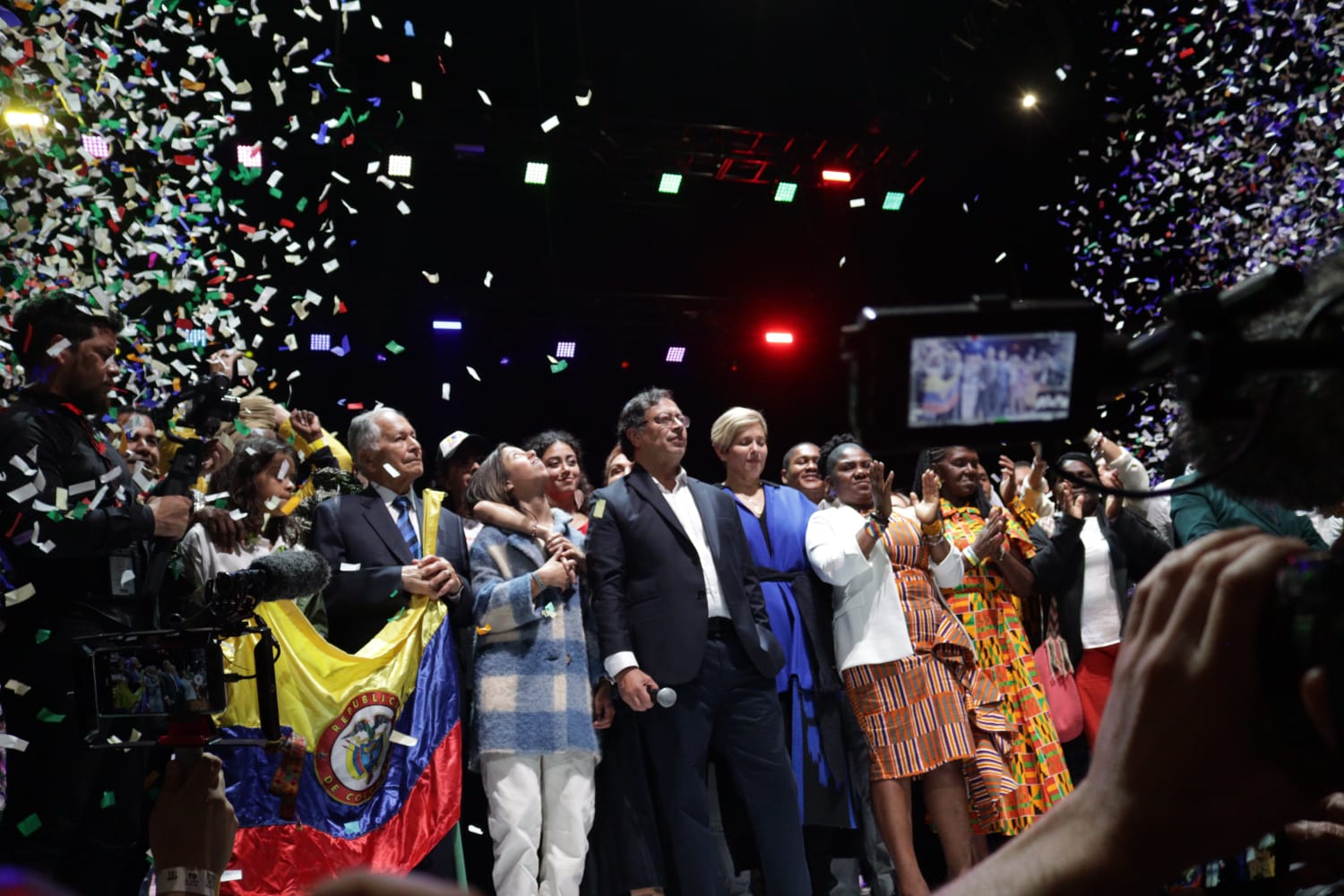Colombia has elected a progressive left-wing president for the first time in its 214-year history. The support of young people, women and marginalised communities played an important role in the election of Gustavo Petro and his vice-president Francia Márquez. The victory breaks a historical trend of electing right-wing governments in one of the most conservative countries in Latin America.
Tense campaign
After a tense campaign, the former mayor of Bogotá and senator was convincingly declared the winner. In a previous life, Gustavo Petro was a fighter of the guerrilla movement M-19, which was demobilised in 1990. Future vice-president Francia Márquez is an Afro-Colombian environmental activist, feminist and victim of the armed conflict. She comes from one of the most disadvantaged regions of Colombia.
The electoral campaign was polarised, following the parliamentary elections in March. In the preliminary round on 29 May, candidates from established political parties were sent home after a large part of the population, frustrated by decades of poverty and inequality, voted. In the second round on 19 June, the battle was between the two remaining candidates, Rodolfo Hernández, a 77-year-old businessman who wanted to fight corruption, and 62-year-old Petro with his plans for social reform.
Politics of love
In his victory speech, applauded by thousands of frenzied supporters who could hardly believe the new reality, Petro immediately made it clear that he wants to restore peace in the still violent country. He promised to govern with “the politics of love”, based on hope, dialogue and understanding. He called for a Grand National Accord, in which he wants the people of the disadvantaged regions to have their say. “Colombia’s diversity must be included in these regional dialogues. Not only those who have taken up arms, but also the silent majority of peasants, indigenous peoples, women and youth. Based on the regional dialogues, the reforms Colombia needs to live in peace can be built.”
Petro’s government takes office on 7 August and faces major challenges, including a congress with a fervent opposition, the national armed forces with a conservative tradition, and a business elite that will try to thwart economic reforms. In addition, Petro will have to work on a renewed relationship with the United States and its war on drugs.
Nevertheless, the results of these elections offer hope for change and will undoubtedly give impetus to the peace agreement between the government and the FARC guerrillas, which was signed in 2016 but has so far barely been implemented.




